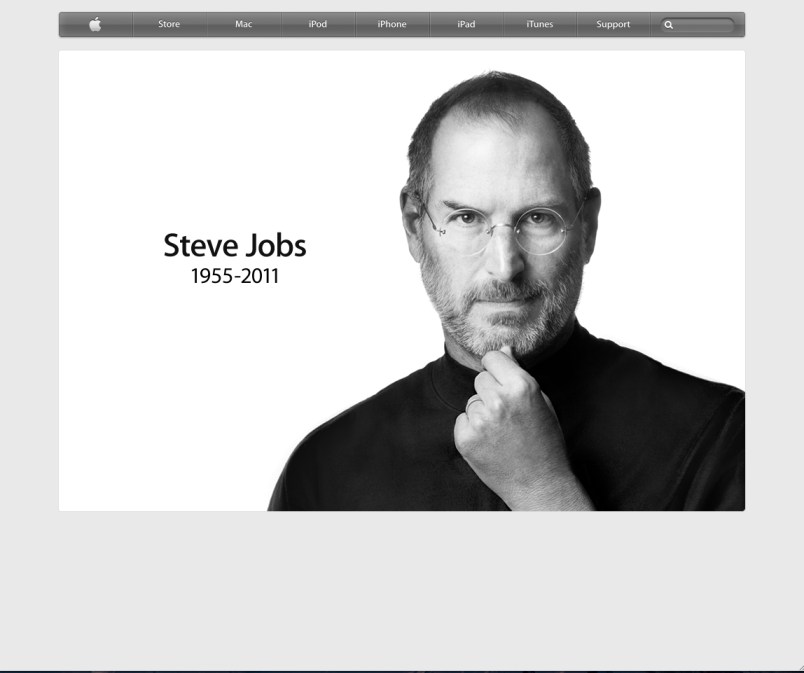Apple Founder Steve Jobs has died. The company notified the world on Wednesday evening with a landing page saying:
“Apple has lost a visionary and a creative genius, and the world has last an amazing human being. Those of use who have been fortunate enough to know and work with Steve have lost a dear friend and an inspiring mentor. Steve leaves behind a company that only he could have built and his spirit will forever be the foundation of Apple.”
Jobs, who suffered from an undisclosed illness, resigned from Apple as CEO at the end of August. He said at the time: “I have always said if there ever came a day when I could no longer meet my duties and expectations as Apple’s CEO, I would be the first to let you know. Unfortunately, that day has come.”
In 2004, he announced that he had pancreatic cancer. Later on in 2009, he had a liver transplant.
Despite all of these difficulties, Jobs kept appearing at product launches as passionate as ever, even though at times he looked extremely gaunt.
In a statement issued late Wednesday, Apple said: “Steve’s brilliance, passion and energy were the source of countless innovations that enrich and improve all of our lives. The world is immeasurably better because of Steve. His greatest love was for his wife, Laurene, and his family. Our hearts go out to them and to all who were touched by his extraordinary gifts.”
Jobs’ creative spirit, passion for design and forceful personality sparked off headlines even as recently as this June when he appeared before the city council in Cupertino to explain the company’s plans to consolidate its various rented office spaces into a circular, futuristic building on 150 acres.
While there, he gleefully told the council members that the proposed building looks like a spaceship.
Headlines went up in news outlets around the world after that about Apple’s new “iSpaceship” office park.
The building is to be designed by the renowned British architectural firm Norman Foster & Partners.
Steve Jobs co-founded Apple Computer with his high-school buddy Stephen Wozniak and two others in 1976. They had been part of a group called the Homebrew Computer Club in the Bay Area, a group of friends and hackers who at the time believed computing should be decentralized and made personal.
That hacker ethic of democratizing information and empowering people was part of a broader movement, but Apple stayed a favorite among designers and media types throughout the decades.
In politics, media campaign consultant (and Apple fanboy) Phil DeVellis in 2007 famously adapted that idea of empowerment and changing paradigms when he mashed up Apple’s 1984 Superbowl ad, which featured IBM as “Big Brother.” DeVellis featured the establishment figure at the time, Hillary Clinton, as Big Brother, and he substituted the Apple logo at the end of the ad with a rainbow-colored “O” with a leaf on top.
The implication was that the Obama campaign, like personal computing, would decentralize the political process and wrest away centralized control over messaging just as personal computers turned the world of mainframe computing upside down.
Aside from influencing generations of people and giving them useful tools to create, Jobs also fitfully built and resuscitated Apple into one of the world’s most valuable technology companies: Earlier this year the company briefly topped Exxon Mobil as the world’s most valuable company. It was even noted that Apple had more cash than the U.S. Treasury.
Aside from all of this, however, was the man’s sheer creativity and obsessive attention to detail that made Apple’s products “insanely great.”
One great graphical representation of this is an interactive chart the New York Times posted in late August. It illustrates many of the patents on computing and device concepts that list Jobs as one of the inventors. You can check that out here.
Though he wasn’t much of a philanthropist, there’s no question that Steve Jobs lived up to his own personal maxim that “we’re here to put a dent in the universe.”









